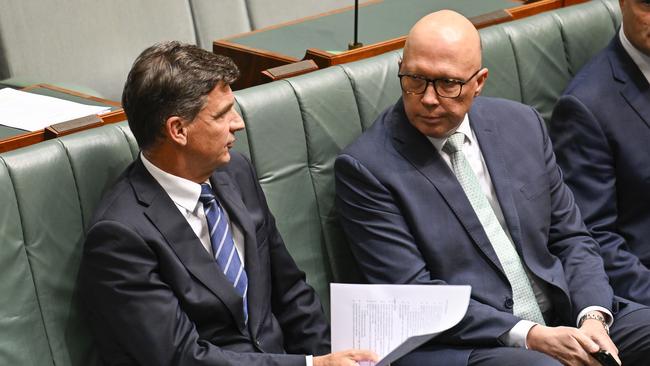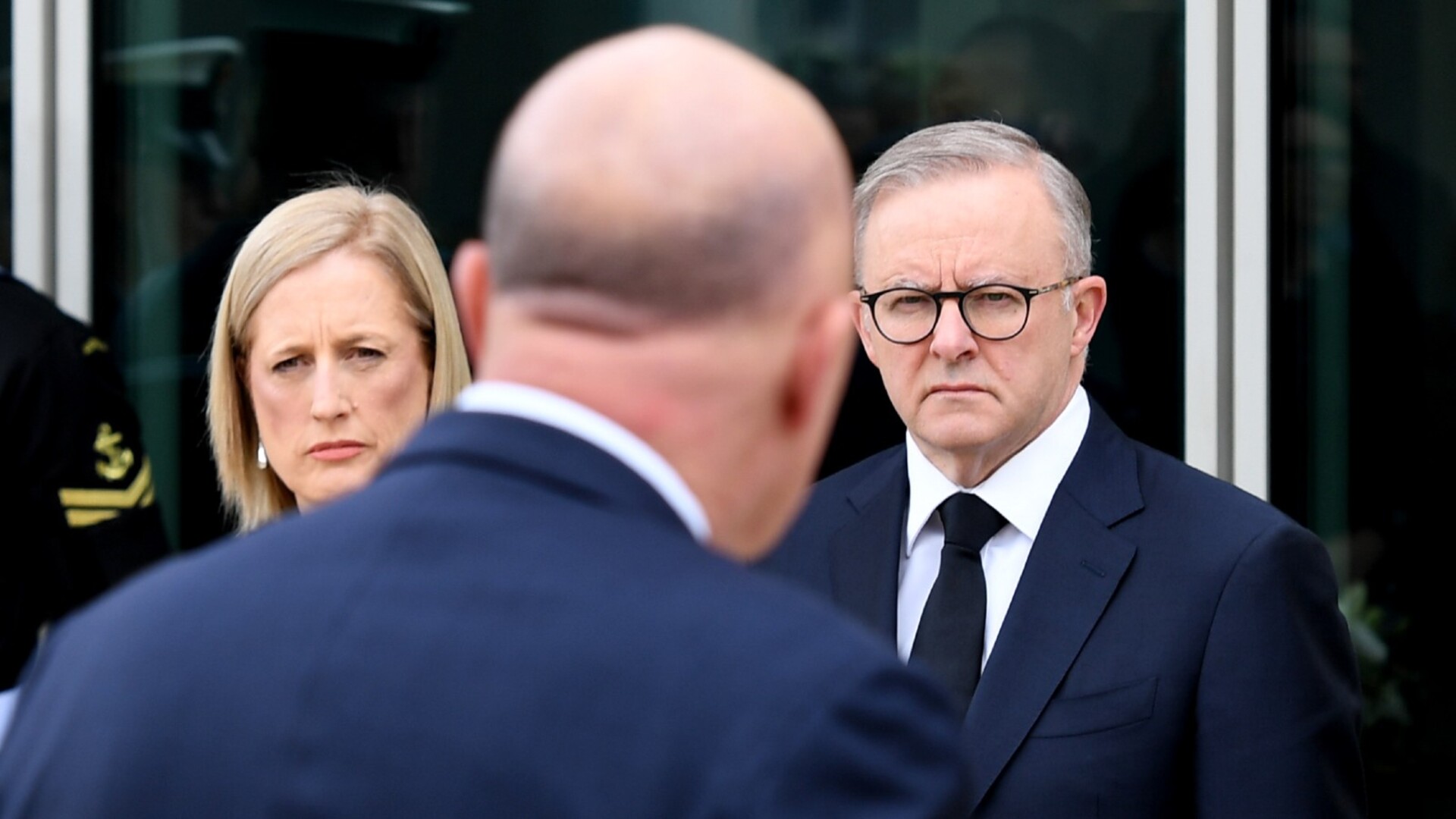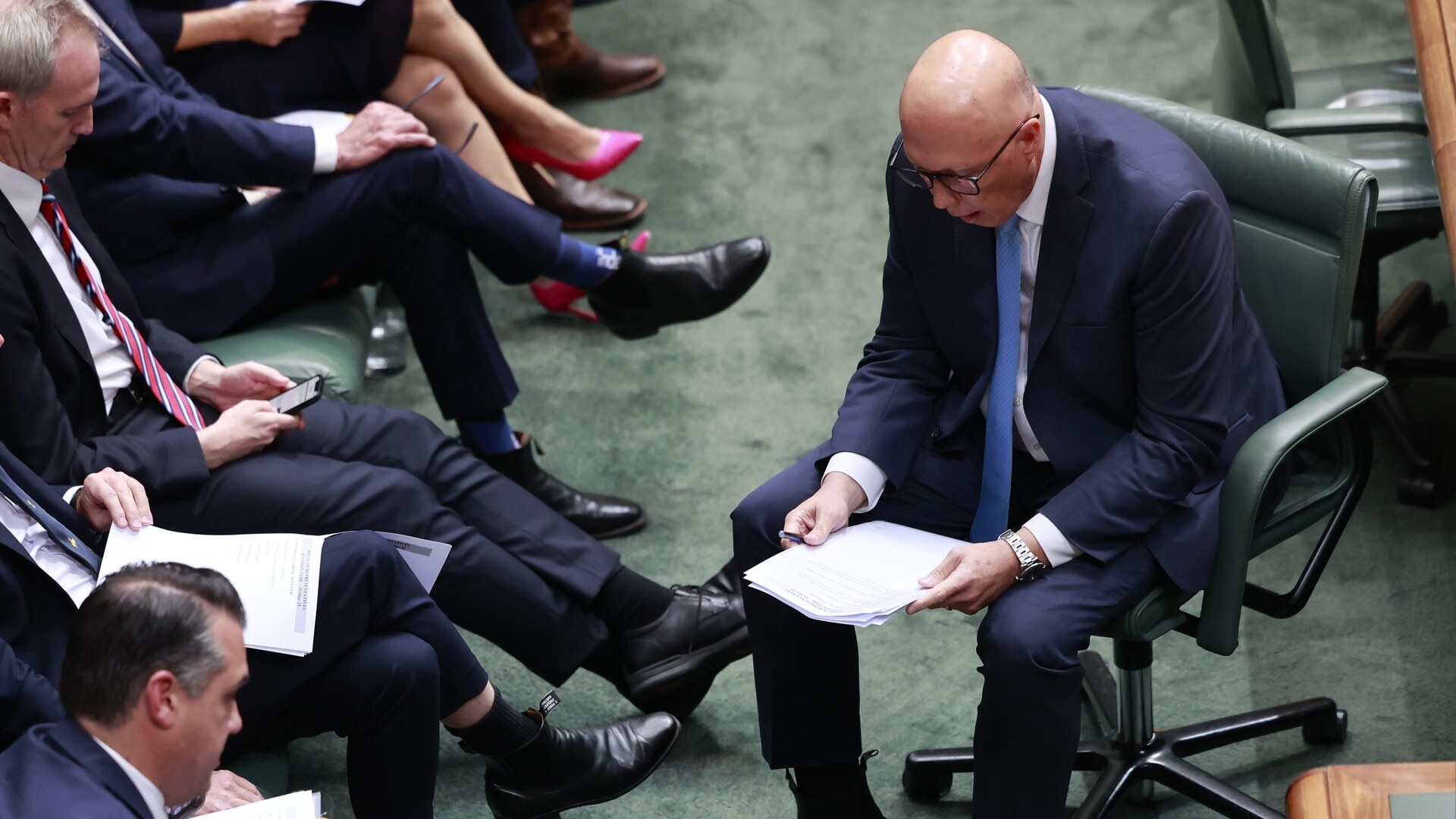
The 2025 election has just been plunged back into the ’70s with Peter Dutton outbidding Anthony Albanese on populist hip-pocket policies that will appeal to voters but won’t win any plaudits from economists.
The Opposition Leader’s $6bn cut to the fuel levy offers more cost of living relief to the outer metropolitan suburbs and regions. More importantly it will come a year sooner than Labor’s 70c-a-day tax tweaks.
Dutton has decided that he won’t engage in an income tax war with Albanese. He has shifted the battlefield to what’s coming out of people’s pockets rather than what’s going in.
It can almost be guaranteed that there will be be no income tax reform under Dutton if elected, in a first term of government at least.
He will spend a third of Labor’s $17bn in tax cuts on this, a large chunk of it on defence, and the rest he is likely to bank to give some comfort to hard heads that structural budget reform hasn’t just been sucked out of the bowser.
Economists didn’t like it when John Howard cut the fuel levy, were equally unenthused by Morrison’s repeat offence and will likely come down hard on its revival.
Dutton’s argument will be that to do the structural budget reform needed, the Coalition has to be in government. And to get into government, it needs to win an election.
This policy is broad in nature but politically targeted – tradies and outer-suburban families will benefit the most.
He will also argue that the cut to the fuel levy will be temporary - 12 months – compared with the baked-in spending that the Albanese government has engaged in.

Labor’s tax tweaks have provided little more than an expensive cover story for its mistakes in government, with the architects of this fiscal folly appearing to be more interested in the political theatrics of Peter Dutton’s opposition to them than what they practically deliver.
Largely because what they deliver isn’t much.
Chalmers on Tuesday, during his walk through of the press gallery budget lock-up, said out loud what treasurers should never admit: effectively describing his budget as abnormal. It was a “pre-election budget”, he was at pains to say. There was no innuendo intended. He simply expected observers to be impressed that he managed to find any savings at all, let alone another $2bn, simply because of this fact.
It was a rare pubic admission that everything about this budget is political. All he had to do was make the numbers add up.
Labor may like to believe that the Opposition Leader has walked into Labor’s trap in his rapid rejection of its tax measures. That remains to be seen.
Dutton’s decision to finally draw a line in the sand on me-tooing Labor ideas, was a calculated one based on two simple principles. Had he waved them through, as he has done with much of Labor’s spending agenda so far, the Opposition Leader would have faced legitimate questions as to what the point of the Liberal Party is. The microscopic scale of the cuts made the task easier. By the time they are introduced in 15 months, their value will have been reduced to even less than the 70c a day they represent today.
The Coalition’s argument is that the cuts do not represent reform of any kind. Instead, considering how they are structured at the low end of the tax base, they constitute nothing more than a handout that seeks to tether even more voters to government dependency. They will not only be gobbled up by the end of the decade but workers will in fact be $500 less well off on average because of the bracket creep which these tax reductions conspicuously don’t address.
This has presented a potential political opportunity for Dutton. Putting aside Labor’s theatrics of pushing the cuts through parliament on the eve of an election, people may very well have already seen through the cynicism of Labor’s venture.

The second and more immediate reason Dutton could not support them was just as obvious. Dutton is now in furious discussions with senior colleagues on the size of the fiscal envelope he has to work with to deliver his alternative election agenda.
Dutton has promised to reveal “something big” in his budget-in-reply speech on Thursday night.
This is as much as a surprise as Labor’s tax cuts.
Dutton can hardly argue that cutting the fuel excise is reform either. It is pure populism.
It is inconsistent with the Coalition’s proclaimed economic principles that underwrite the return to fiscal responsibility.
The competition injected into the debate over household relief from cost-of-living pressures now hinges on a basic question that only Australians can answer.
It is a contest that asks a nation whether government handouts and state dependency or an aspirational appeal through sustainable economic management provides the answer. Labor believes that dependency wins the political argument.
And if the country indeed has lost its attachment to the spirit of personal responsibility and aspiration, then we will soon find out.
It is not a new argument but rarely has it been as acute. The nation has been here before. Eventually, history has proven, Australians inevitably end up on the side of aspiration and personal responsibility.
The question is how long do we roam aimlessly around in the wilderness before the country gets back to this point. This now constitutes the great political divide and a struggle that may well be with us for years to come.



